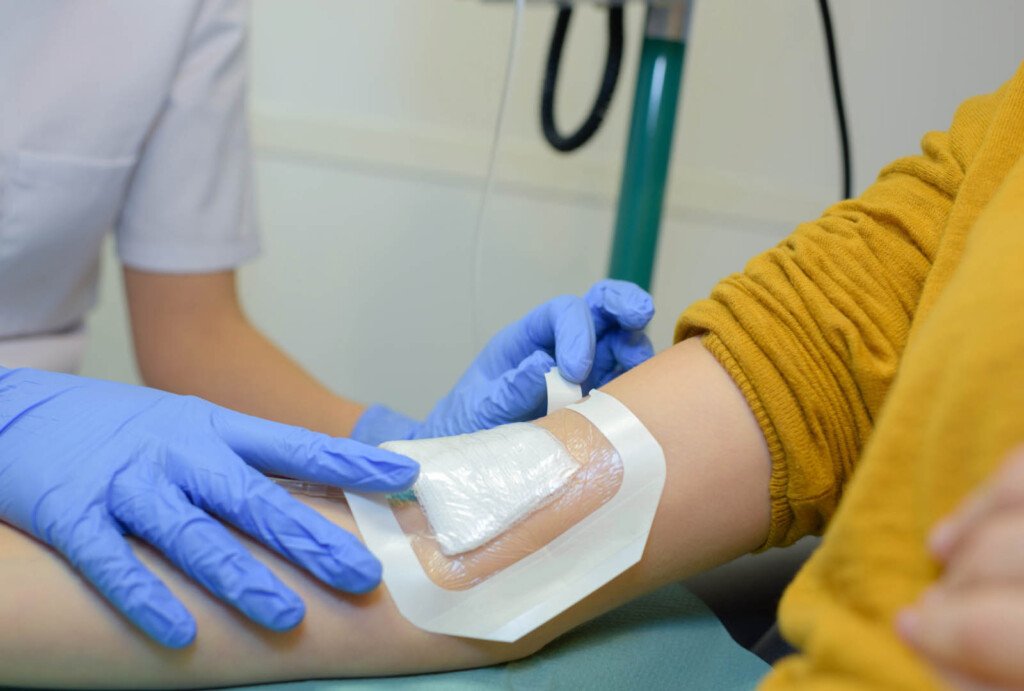Cost of private medical care, explained
August 30, 2024
One in 20 patients wait at least four weeks to see a GP, according to NHS figures. With the NHS under tremendous strain, it’s little wonder that private medical care is growing to meet the needs of patients. Wait times are much shorter, care is personalised, and consultations are typically longer than the standard time allotted to NHS patients.
However, these benefits come at a cost, and understanding these expenses is crucial if you’re considering budgeting for private healthcare.
Consultation fees
Consultation fees are a key part of private healthcare pricing.
The private GP cost you pay depends on several factors:

Experience and expertise
Fees are higher for doctors with significant experience, specialised training, or an established reputation. Patients often pay more for the assurance they’re receiving care from a highly qualified professional. If you’re scheduling a routine visit with a private GP, the cost typically ranges from £50 to £250.
Location
The geographic location of the clinic plays a substantial role in determining consultation fees. In major cities in high-demand regions – where the cost of living and operating a practice are higher – patients can expect to pay more than in smaller towns or rural areas.
Specialists
The cost of seeing a specialist is generally higher than that of a GP. Fees for specialist consultations can go up to £300 or more. This increase reflects the specialised training and expertise required in fields like cardiology, dermatology, or orthopaedics, where consultations often involve more detailed assessments or complex diagnostic procedures.
Type of consultation
The purpose and complexity of the consultation also influence the cost. Initial consultations, which may involve a comprehensive evaluation and a detailed discussion of your medical history, are often more expensive than follow-up visits. If the consultation demands advanced diagnostics or additional procedures, the costs will increase accordingly.
Consultation length and complexity
The duration and complexity of the consultation directly impact the fee. A straightforward visit addressing a single health issue is likely to be less expensive than a longer session dealing with multiple or complex medical concerns.
Additional services and tests
Sometimes, consultations include or lead to additional services like blood tests, imaging, or minor procedures. These extras may be included in the consultation fee or billed separately, depending on the clinic’s policies.
Diagnostic tests and procedures
In private healthcare, diagnostic tests and procedures are crucial for accurately identifying and managing medical conditions. However, these services come with additional costs that can accumulate rapidly, depending on the complexity and type of test or procedure. Below is an expanded overview of what to expect in terms of costs for various diagnostic services.

Blood tests
Blood tests are used as diagnostic tools to evaluate a broad spectrum of health indicators. These tests range from assessing general health parameters to diagnosing specific conditions, such as cholesterol and hormone imbalances or the presence of infectious diseases.
Routine: The cost for basic blood tests, such as a full blood count (FBC) or a lipid panel, typically ranges from £50 to £150. These tests are often used to monitor general health, detect anaemia, or assess risk factors for heart disease.
Specialised: More specialised blood tests, such as those for genetic markers, hormone levels, or specific disease screening (like cancer markers), can be significantly more expensive. Prices for these tests can range from £150 to £3000 or more, depending on the test’s complexity and the technology required.
The factors behind the costs
Several factors influence the cost of blood tests. The complexity of the test is a primary determinant, with simple tests typically costing less than those requiring specialised equipment or processes. The urgency of the results can also impact the cost, as expedited processing often incurs additional fees. And of course, the location of the testing, whether in-house or at an external laboratory, can affect the final price, with external processing generally resulting in higher charges.
Imaging

Imaging studies are essential for diagnosing a wide range of conditions, from broken bones to more complex internal issues like tumours or neurological conditions. These procedures tend to be more expensive due to the advanced technology involved. They’re also more commonly carried out in hospitals, both private and NHS.
Imaging studies are essential for diagnosing a wide range of conditions, from broken bones to more complex internal issues like tumours or neurological conditions. These procedures tend to be more expensive due to the advanced technology involved. They’re also more commonly carried out in hospitals, both private and NHS.
X-rays: Typically used to visualise bones and joints, as well as some internal organs. The cost for an X-ray usually ranges from £50 to £200, depending on the area being examined and the number of images required.
Ultrasound: Often used in prenatal care, as well as to examine soft tissues and organs, ultrasounds can range from £100 to £400.
MRI (Magnetic Resonance Imaging): MRI scans are generally more costly than traditional imaging methods like X-rays, due to the specialised equipment and complex procedures involved. Costs usually range from £300 to £1,000 or more. Factors influencing the price of an MRI include the body part examined, the intricacy of the scan, and the use of contrast agents.
CT Scans (Computed Tomography): CT scans, which combine X-ray images taken from different angles to produce cross-sectional views of the body, typically cost between £300 and £1,200. They are often used to detect cancers, cardiovascular diseases, and other internal injuries.
Minor procedures
Minor procedures vary in terms of complexity, scope, and cost. While they are termed “minor,” these procedures are critical for diagnosis, treatment, or preventative care, and the expenses involved can vary widely depending on several factors, including the nature of the procedure, the expertise required, and the facility where it is performed.

They can range from £375 for a mole removal to £1000+ for a biopsy. The more invasive, the more likely it is that a private hospital will perform the procedure.
What about insurance?
Healthcare insurance can help defray the costs of private GP care, though the extent of coverage can vary significantly depending on the policy. Keep in mind that not all private GPs accept insurance. If your choice does, It’s important to check with your insurer beforehand to understand what’s covered and whether you’ll need pre-approval for certain tests.
What about a subscription?
When you take out a subscription with a private GP, you’re making a financial commitment, whether you pay monthly or annually. Costs vary, as do the services included in your subscription. For example, a subscription can cost as little as £17 a month but that might only cover video or phone appointments. Or, it can cost as much as £150 a month, which might include a certain number of appointments at a reduced rate per year and discounts on services.
Whether or not you use the subscription model depends on your comfort level with paying each month, even if you don’t need to see a doctor. (Note, as of this time, Magna Private Healthcare does not offer subscriptions, so you only pay for medical care as you need it.)
Balance private GP cost with the benefits
Weigh the cost of private medical care with the advantages. For many patients, it’s worth budgeting for private healthcare. Keep in mind that while private GP cost can be substantial, it reflects the quality of care, expertise, and convenience provided. Being aware of the factors that influence these fees can help you make informed decisions about your healthcare choices, so that you receive the care you need while managing costs.
You can review services and associated costs from Magna Private Healthcare here. If you have any further questions, you can let us know here.